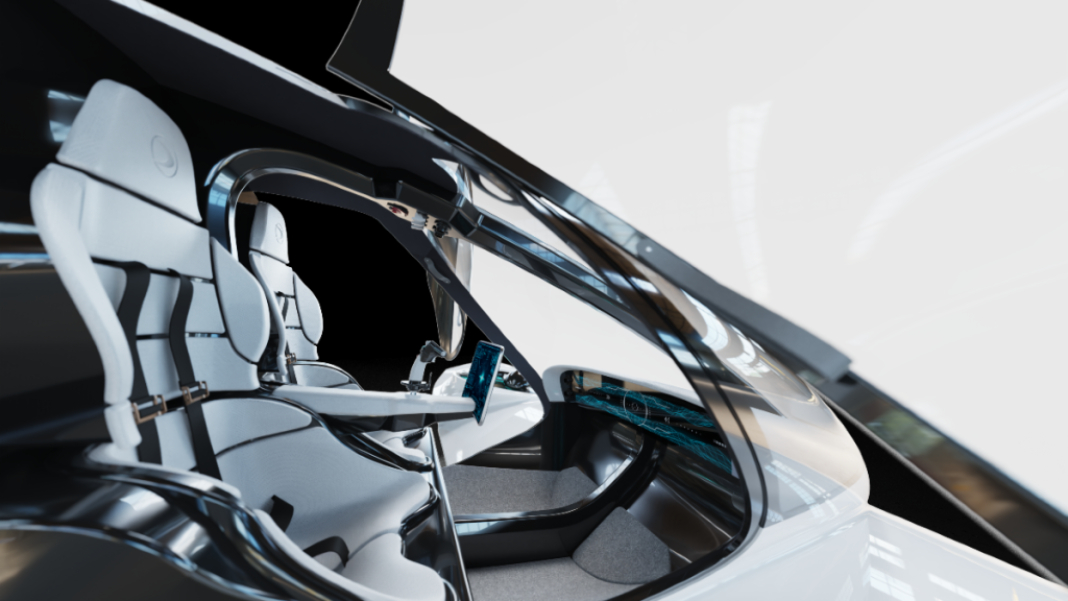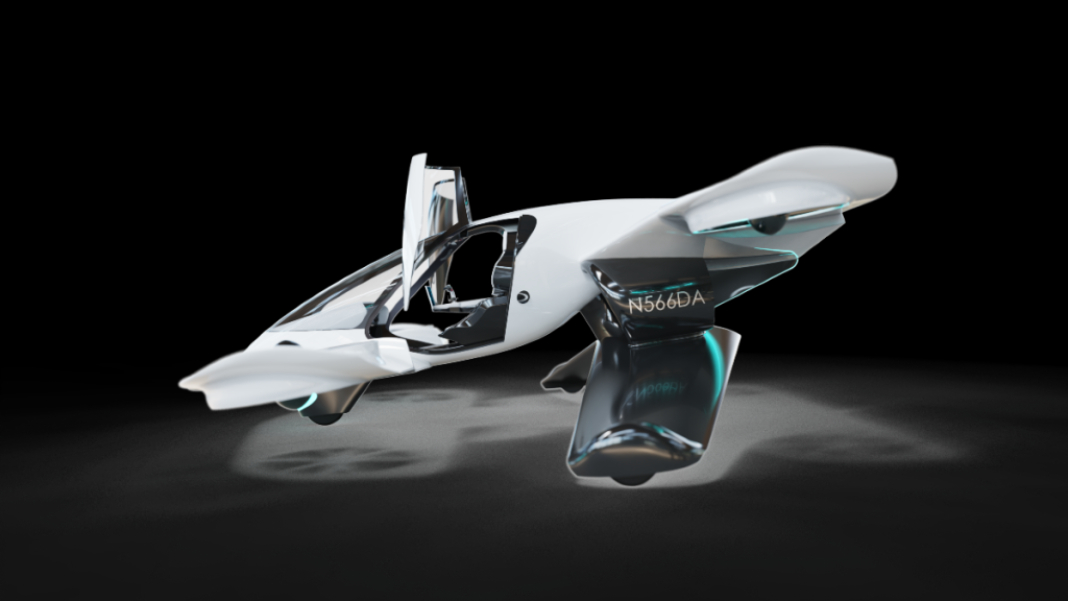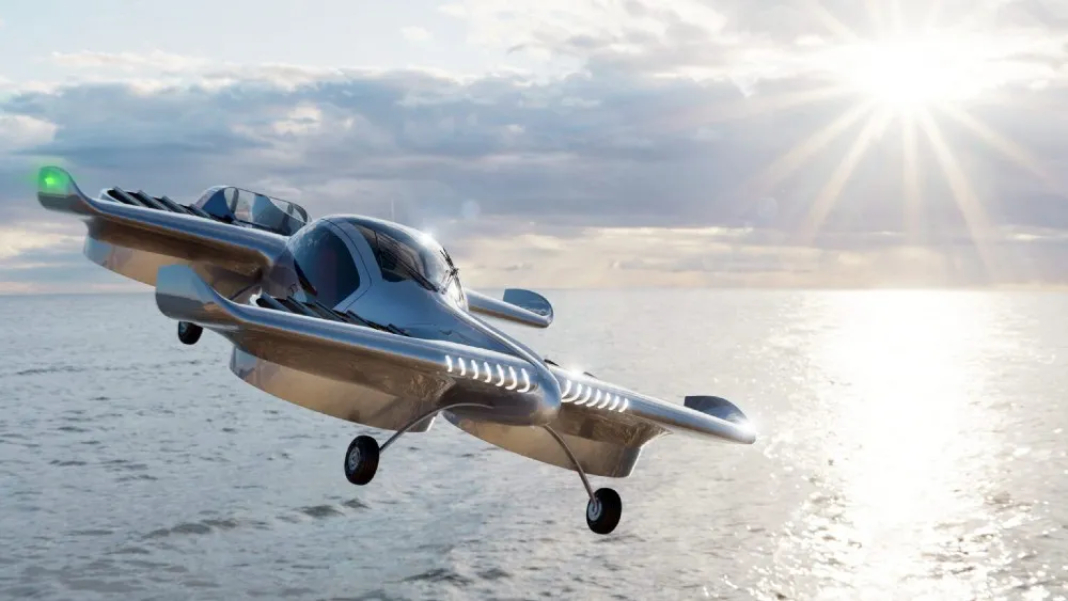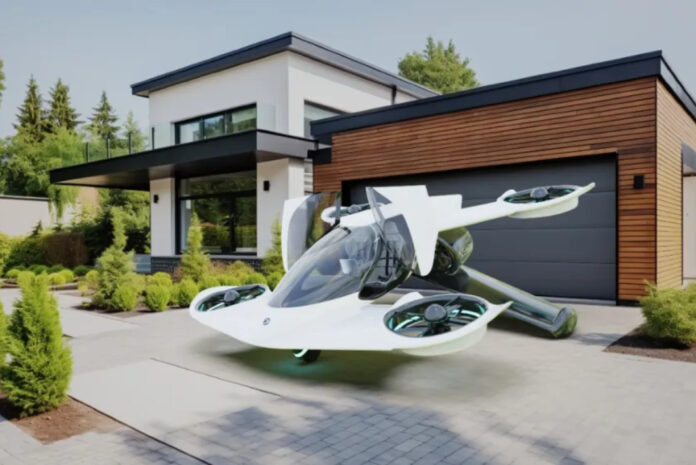Florida’s Doroni has announced the H1X electric flying car
After completing its first manned flight last year in June, the H1X electric flying car from Doroni is set to move into flight testing later this year with units reaching clients by 2025. The two-seater eVTOL is currently a full working prototype that can hit a top speed of 120 mph, has a 60-mile range, and 40 minutes of flight.
Weighing at 1,350 pounds, the Doroni Aerospace H1X electric flying car is able to carry 500 pounds of payload. The design utilizes two counter rotating coaxial fans that are positioned in the ducts along the wings. In addition to making sense for control authority in VTOL operations, the fans also seem to provide the H1X a little bit more wing area, especially in the back.
“We redesigned the entire airframe for improved aerodynamics,” said CEO Doron Merdinger to Robb Report. “We felt we had to come up with a design that maximized speed and range, while also fitting in a two-car garage.”

The Doroni Aerospace H1X plans to become an ultralight aircraft certified by the Federal Aviation Administration so that it can operate in cities. However, as there isn’t already an eVTOL certification, Doroni and other manufacturers of electric air taxis are collaborating with the FAA to determine the specifics of certification. The H1X is viewed by the business as an eVTOL that will take the place of commuter automobiles or trains.
“My goal is not to increase the number of roads in this country by pushing urban air mobility,” Merdinger added.

For easier flying, the H1X electric flying car will be semi-autonomous and operated using a joystick. According to Merdinger, a license of some kind will be needed, though not a traditional pilot’s license.
“Some of new electric aircraft require 20 hours of flight, but we believe this vehicle won’t even need that since it’s pretty simple to control.”

For situational position and safety, the Doroni Aerospace H1X electric flying car is equipped with optic-flow cameras, LIDAR, barometers, and anti-collision sensors. There is a ballistic parachute in case of failure, and many fans provide a measure of redundancy in case one system fails. The eVTOL will have a big windshield for improved visibility and be constructed out of carbon fiber.
The company’s goal is to sell six units by 2025, with the goal of reaching seven units per day of production by then. The cost will range from $300,000 to $400,000. According to Merdinger, Doroni currently has 450 pre-orders of the H1X.
